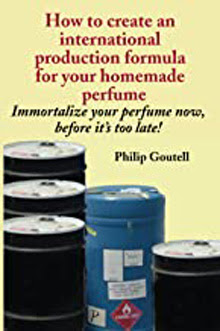Some things take time. If you want to make perfume, yourself, you must understand this and learn to be patient, even when you're in a rush to get on with it.
It takes time for aroma materials to blend. More time than we want to wait in many cases. Commercial fragrance production plants have ways to speed up the process, but this may not result in the best perfume possible.
How long does it take materials to blend? To ripen? To change from what they were when you mixed them to what they might ultimately become? In truth the mixture that had already "changed" in an hour might still be "changing" for up to a year or more. Ask yourself why is it that wines and whiskeys are aged. Chemical activity continues to go on and on, in spire of our wanting the job to be finished.
In blending perfume we learn to be practical without being hasty. We discover that the scent of our blend after 24 hours is not the same as the scent after a week. But how long should we wait before calling the job "done"?
I've lately been experimenting with fermentation. The demonstration can be dramatic. Start the fermentation process and plug your bottle with a cork. In the morning your cork will be missing -- shot off by the pressure of gas that has been released.
Do this day after day. In perhaps a MONTH the fermentation will be complete. All the available glucose has been converted to alcohol and carbon dioxide (the gas whose pressure has been blowing the cork out of the bottle.) At this point you can safely cap the bottle and it won't explode. But the chemistry within the bottle will continue. Now it is your decision as to how long you will let it continue to age -- and blend -- before declaring it "finished." The limit you set is likely to be far short of the ultimate limit nature has set.
Thus it is with perfume. On the one hand patience is required. Bottle your juice too quickly and it will play tricks on you. What you deliver to your customers may be quite different than what you put into the bottle -- for better or for worse.
So yes, there is a commercial decision to be made. The decision as to how long to let your mixture blend before putting it to use.
How long must it sit before it is practical to call it finished? That is a decision you must make for yourself, by testing, testing, and testing some more to see how time -- blending time -- is affecting your perfume.
Only through this repeated testing -- and patience -- can you be reasonably assured that you are delivering, to your customer, the product you intended.
Tuesday, July 16, 2013
Subscribe to:
Post Comments (Atom)


No comments:
Post a Comment